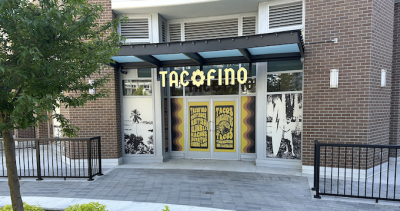Stephanie Boyd: Conflict at Canadian mines in Peru highlights empty promises of climate talks
Peru rolled out the green carpet this week for the Conference of the Parties (COP 20), the United Nations climate change talks, amidst harsh criticisms from indigenous leaders and activists who say the government is far from eco-friendly.
The South American nation has spent US$54 million to host the 12-day forum, which runs from December 1 to 12, with leaders from 195 countries and more than 10,000 delegates.
But while Peru tries to show a green face to the world, opposition parties accuse the government of watering down environmental legislation and unleashing the police on indigenous and farming communities defending their land and water resources.
Canada has rewarded Peru for such behaviour by strengthening ties and increasing development aid.
Peru is Canada’s second largest trading partner in South and Central America, and Canadian direct foreign investment in Peru reached close to $8.1 billion last year. But Canuck mining companies operating here have earned a nasty reputation for conflict with local communities.
There’s the case of Vancouver’s Candente Copper Corporation in northern Peru, where at least 25 protesters were wounded last year in clashes with police. The proposed mine would operate in a fragile tropical forest and the neighbouring indigenous population says the project would destroy their water resources and livelihood.
Two years ago the community of Kañaris held a referendum in which over 90 percent voted against the mine, but the company has ignored the results and is pushing ahead with the project. A company press release from January says the local community supports the mine, but in May community leaders filed an injunction against the project with the Inter-American Commission of Human Rights.
At the end of October, Rosa Sara Huaman, a Kañaris leader, spoke at a hearing of the commission.
“They won’t leave us in peace,” Huaman said at the hearing. “The government has installed a police post that follows our activities and reports to the mining company and the government.”
At the other end of the country, in Peru’s southern Andes, another Vancouver-based company is enmeshed in controversy. Protests against Bear Creek’s proposed Santa Ana mine resulted in the deaths of at least five locals at the hands of police. In a company press release, Bear Creek CEO Andrew Swarthout blamed the protests on a “pre-election political climate”, and insisted that “Bear Creek has received strong local community support for our Santa Ana project.”
The protests were so uncontainable however that the previous Peruvian government of Alan Garcia suspended Bear Creek’s licence. This is one of the only instances where the Peruvian government stepped in to assert its sovereignty and defend local communities. The Canadian company started an arbitration proceeding with the World Bank in August saying the suspension violates its rights under the Canada-Peru free trade agreement.
These are just two of many conflicts at Canadian mines in Peru. Two years ago a protester was killed by police during demonstrations against Barrick Gold’s Pierina mine. Most recently, in mid-November Quechua-speaking farmers shut down construction on a copper mine in the southern Andes owned by Toronto-based Hudbay. Over 400 protesters set up camp on the future mine site and blocked roads for nearly two weeks to protest the company’s failure to comply with environmental monitoring and social projects.
A video filmed by the protesters shows a dozen women being attacked by Peruvian police while they sat peacefully outside the mining compound’s front gates. Rosita Quispe showed me a large, ugly bruise encompassing most of her forearm.
“They beat us with batons and pulled us up by our hair,” Quispe said. “They threw tear gas and we couldn’t breathe.”
The community lifted their strike to begin negotiations with the company last Friday, but leaders vowed to resume the struggle if the dialogue fails.
Peru is the fourth most dangerous country in the world for environmentalists, according to a new report by the non-profit Global Witness. At least 57 environmental defenders have been assassinated in this South American country since 2002 and the government has enacted legislation allowing police to fire on peaceful demonstrators with impunity.
The Canadian government could have helped diffuse conflicts at Canadian mining sites in Peru and around the world by passing Bill C-584 this fall, providing an ombudsman’s office for oil, mining, and gas projects. This office would have investigated complaints from communities affected by Canadian mines abroad and engaged in conflict resolution. Companies would have benefitted from the law because social conflicts make shareholders nervous and spell trouble on the stock exchange.
Over 95,000 Canadians sent letters to Parliament this year in support of the bill as part of a campaign by the Canadian Network on Corporate Accountability (CNCA). Opposition parties voted in favour of the bill in October, but Harper’s government shot it down.
Instead the Canadian government has chosen to act like a high-profile public relations firm for the mining industry. Last year Harper’s government pledged $53 million of taxpayer’s money in development projects for Peruvian communities where Canadian companies operate. So if you want Canadian aid, you have to hand over billions of dollars in mineral resources to a Canuck company first. Not exactly the true spirit of giving, Mr. Harper.
If Canada is serious about addressing climate change, the government needs to regulate its mining, oil, and gas industry, both at home and abroad. This includes creating honest and effective monitoring bodies, like an ombudsman for projects overseas.
Until the perpetrators of environmental destruction are brought to task, summits like Lima’s COP 20 are no more than fancy speeches and photo ops. Our planet’s survival depends upon more than empty promises.















Comments